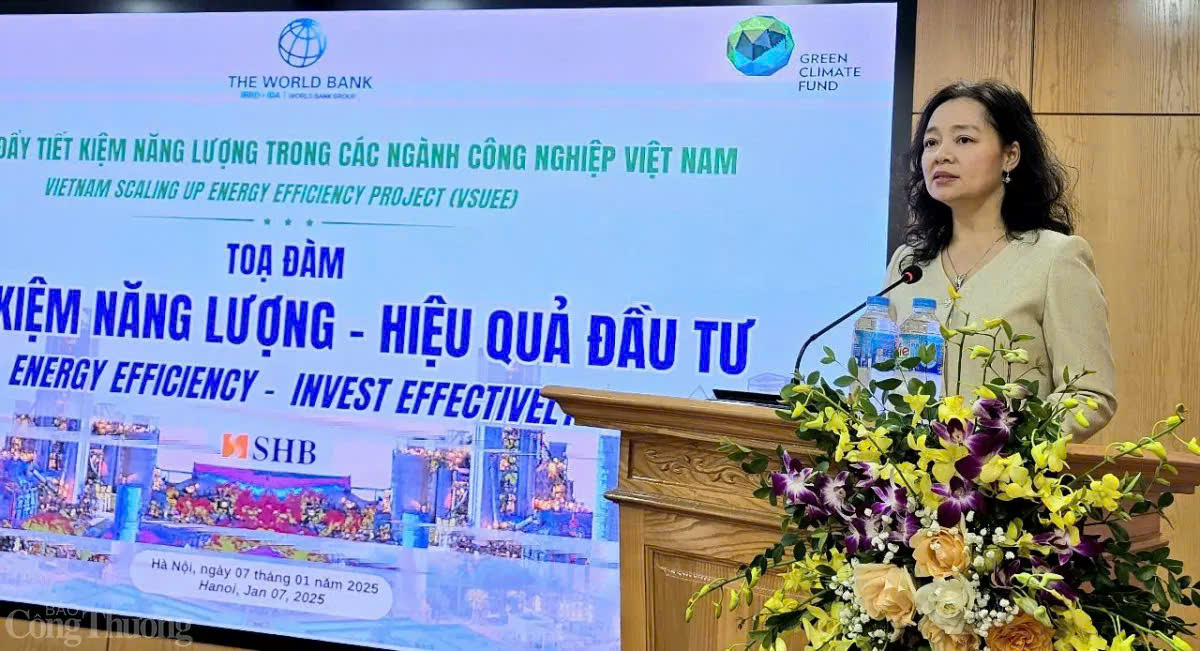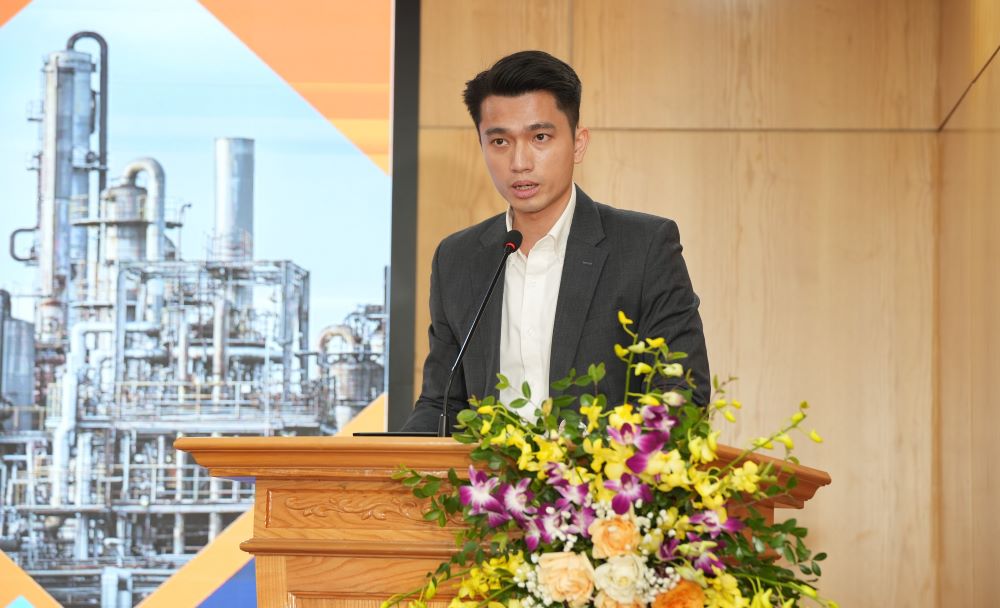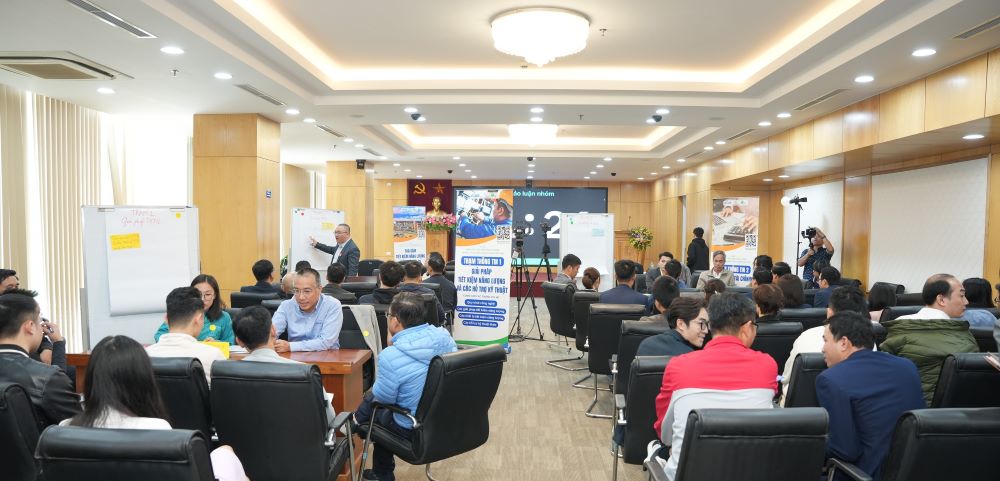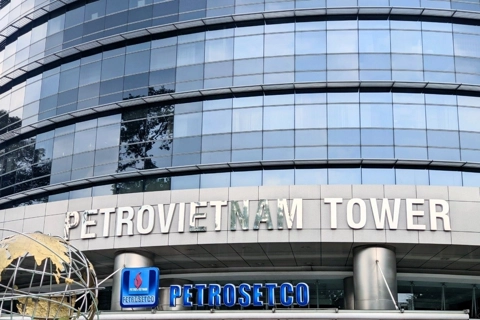Mechanisms matter to promote energy efficiency in Vietnam's industrial sectors
Vietnam has pursued solutions to enhance energy efficiency in high-energy-consuming industries through an $11.3 million project running from March 2022 to January 2026.
Mechanisms like the Risk Sharing Facility (RSF) and collaboration between businesses and financial institutions have enabled Vietnam to achieve energy-saving goals and foster sustainable industrial growth.
| Nguyen Thi Lam Giang, Director General of the Department of Energy Efficiency and Sustainable Development and Project Director, speaks at the seminar held in Hanoi on January 7. |
Nguyen Thi Lam Giang, Director General of the Department of Energy Efficiency and Sustainable Development and Project Director, told The Hanoi Times at the seminar on “Energy Efficiency - Invest Effectively” under the framework of the Vietnam Scaling Up Energy Efficiency Project (VSUEE) funded by the World Bank (WB).
Vietnam, in the support of the World Bank (WB), has explored solutions to advance energy efficiency in the industries that consume a large volume of energy, through the VSUEE launched in March 2022 until January 2026.
The US$11.3-million project financed by the Green Climate Fund (GCF) through the WB seeks to enhance energy conservation, ensure energy security, and support Vietnam’s commitment to achieving net-zero emissions by 2050.
| Nguyen Thu Phuong, the VSUEE Project Coordinator, briefed the project. |
The VSUEE project showcases Vietnam's commitment to energy efficiency and emission reductions as the industrial sector consumes over 50% of Vietnam's total energy, making it one of the most energy-intensive areas. To address this, the VSUEE helps enhance energy efficiency and promote energy-saving investments in the industrial sector, advancing national energy-saving goals, cutting greenhouse gas emissions, and safeguarding Vietnam's environment.
Lam Giang shared the idea at the seminar “Energy Efficiency - Invest Effectively” hosted on January 7 by the Ministry of Industry and Trade (MOIT), in partnership with the World Bank, aiming to drive energy efficiency in Vietnam’s industrial sectors.
She said: “The Vietnam Government has prioritized energy efficiency and conservation, recognizing them as essential pillars for ensuring energy security and promoting sustainable energy development. In 2020, Resolution No. 55/NQ-BTC dated February 11, 2020, by the Politburo on the ‘Strategy for Energy Development to 2030, with Orientations to 2045’ stated that energy conservation must be regarded as a vital national policy and a responsibility for all of society.”
| Do Tuan Linh, a representative of SHB, shared insights on the Risk Sharing Facility (RSF). |
Advancing energy efficiency as a national priority
The seminar featured representatives from the Ministry of Industry and Trade, the World Bank, financial institutions, and industrial enterprises nationwide, providing a platform for sharing experiences, exploring solutions, and fostering collaboration between stakeholders.
Lam Giang emphasized the government’s dedication to energy efficiency, citing Resolution No. 55/NQ-BTC (2020), which regards energy conservation as a national priority. The Vietnam National Energy Efficiency Program (2019–2030), approved by the prime minister in 2019, aims to save 5%-7% of energy by 2025 and 8%-10% by 2030, reflecting Vietnam’s ambition to optimize energy use.
Accounting for over 50% of the nation’s total energy consumption, the industrial sector is pivotal in achieving energy conservation goals. The VSUEE focuses on creating an active energy efficiency investment market to support these efforts.
At the seminar, the Project Management Board outlined the VSUEE project’s key components, including technical and financial support for enterprises and financial institutions. The initiative is expected to significantly contribute to national targets for energy conservation and greenhouse gas emission reductions.
Highlights from the event includes Risk Sharing Facility (RSF), managed by the Saigon-Hanoi Commercial Joint Stock Bank (SHB), is a cornerstone of the VSUEE project. With the funding from the Green Climate Fund through the World Bank, the RSF mitigates credit risks for financial institutions lending to energy efficiency projects.
SHB will issue guarantees to cover loans for eligible energy-saving projects by industrial enterprises or energy service companies (ESCOs).
The first five years focus on issuing guarantees, followed by ten years for guarantee recovery.
| Duong Chi Cong, an expert from Vietnam Technology Solutions JSC, shares energy efficiency models. |
Duong Chi Cong, an expert from Vietnam Technology Solutions JSC, showcased cutting-edge energy-saving solutions tailored to industries such as cement, textiles, plastics, steel, and seafood processing. He told The Hanoi Times that these solutions aim to reduce costs while fostering sustainable development in energy-intensive industries.
The seminar introduced advanced energy-saving technologies to Vietnamese enterprises while connecting them with financial institutions, encouraging investments in energy efficiency projects.
The Ministry of Industry and Trade, together with the World Bank, envisions widespread adoption of energy efficiency solutions. By aligning with the Vietnam National Energy Efficiency Programme (2019–2030), these efforts aim to promote a sustainable, energy-efficient industrial sector while contributing to Vietnam’s broader environmental goals.
| Overview of the seminar. |
The VSUEE is designed to promote energy efficiency in the Vietnam’s industrial sector and contribute to achieving national target on energy efficiency and conservation, ensuring energy security and implementing tasks, actions to reduce greenhouse gas emissions and respond to climate change.
Its specific objectives include piloting implementation of credit guarantee mechanism for energy efficiency investment projects, removing barriers to accessing commercial loans, creating motivation to mobilize finance resources, promoting the implementation of projects, developing the energy-saving investment market.
The main goals are promoting energy efficiency projects through piloting risk-sharing mechanism in investing and implementing energy-saving projects and supporting the implementation of the goals of the National Energy Efficiency Program (VNEEP).
At the same time, it it focuses on capacity building for relevant stakeholders, including central and local agencies, industrial enterprises, commercial banks, and energy service companies. Additionally, improving capacity for the implementation of the Nationally Determined Contribution and Paris Agreement in energy and industrial sectors.



.jpg)

.jpg)








